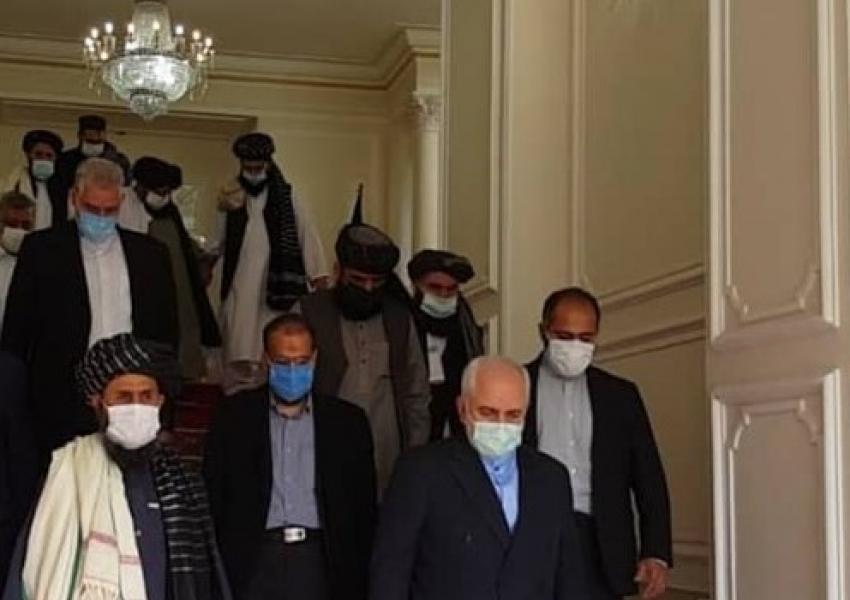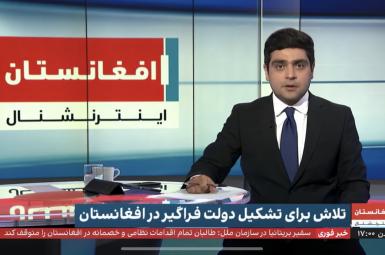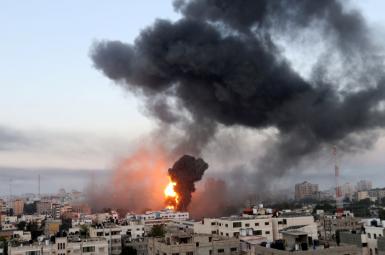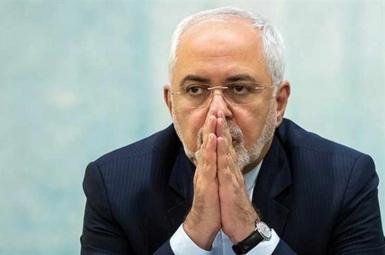
Did Zarif Suggest 'Islamic Government' For Afghanistan?
Foreign Ministry Spokesman Saeed Khatibzadeh Sunday afternoon criticized the Revolutionary Guards-affiliated Tasnim News Agency for a report on Foreign Minister Mohammad-Javad Zarif's meeting with a visiting Taliban delegation earlier in the day and called it "distorted, wrong and even misleading."
The term "inclusive Islamic Government" was not used by Zarif, Khatibzadeh said. The news agency's report "lacked validity," he declared.
According to the website of the Iranian Foreign Ministry, Zarif welcomed the idea of establishing an "inclusive government" in which all Afghan "ethnicities and political groups" are present and said political decisions cannot be made in a vacuum and it is necessary to take all "structures, entities and fundamental laws such as the constitution" into consideration in forming an "inclusive government in a co-operative process."
Tasnim News Agency, however, had quoted Zarif as saying that Iran supports an "inclusive Islamic government" in which all "ethnicities and religious groups" are present.
Khatibzadeh's statement did not explain why given that Afghanistan is already called an Islamic republic, using "inclusive Islamic government" instead of "inclusive government" was so controversial as to merit a statement to criticize the news agency. In its report Tasnim had also replaced "religious groups" for Zarif's "political groups" but Khatibzadeh did not mention that in his statement.
The Taliban delegation arrived in Tehran Tuesday morning [January 26] on the invitation of the Foreign Ministry. The delegation is led by deputy head of the group’s political office Mullah Abdul Ghani Baradar.
According to the Iranian Foreign Ministry, Mullah Baradar pointed out the "destructive role of Daesh" in Afghanistan and the region, and said that in order to achieve peace the establishment of an all "inclusive government" is a requirement.
The top Iranian diplomat also noted that Iran is prepared to facilitate talks between the Afghan government, the Taliban, and other Afghan groups.
The foreign ministry of Afghanistan last week in a statement said it had been informed of the Taleban delegation's visit to Iran.
The Taliban delegation met with the Secretary of Iran’s Supreme National Security Council (SNSC) Ali Shamkhani on Wednesday. In the meeting Shamkhani alleged that the US wants to drag out the war and bloodshed in Afghanistan and put the blame for insecurity in the country on the Afghan parties. Iran would never recognize anyone who tried to come to power in Afghanistan through war, he declared.
Meanwhile, Reuters quoting four senior NATO officials reported that international troops plan to stay in Afghanistan beyond the May deadline envisaged by a deal between the Trump administration and the Taliban, a move that could escalate tensions with the Taliban demanding full withdrawal.
"There will be no full withdrawal by allies by April-end," one of the officials told Reuters.
"Conditions have not been met," he said on condition of anonymity because of the sensitivity of the matter. "And with the new U.S. administration, there will be tweaks in the policy, the sense of hasty withdrawal which was prevalent will be addressed and we could see a much more calculated exit strategy."









